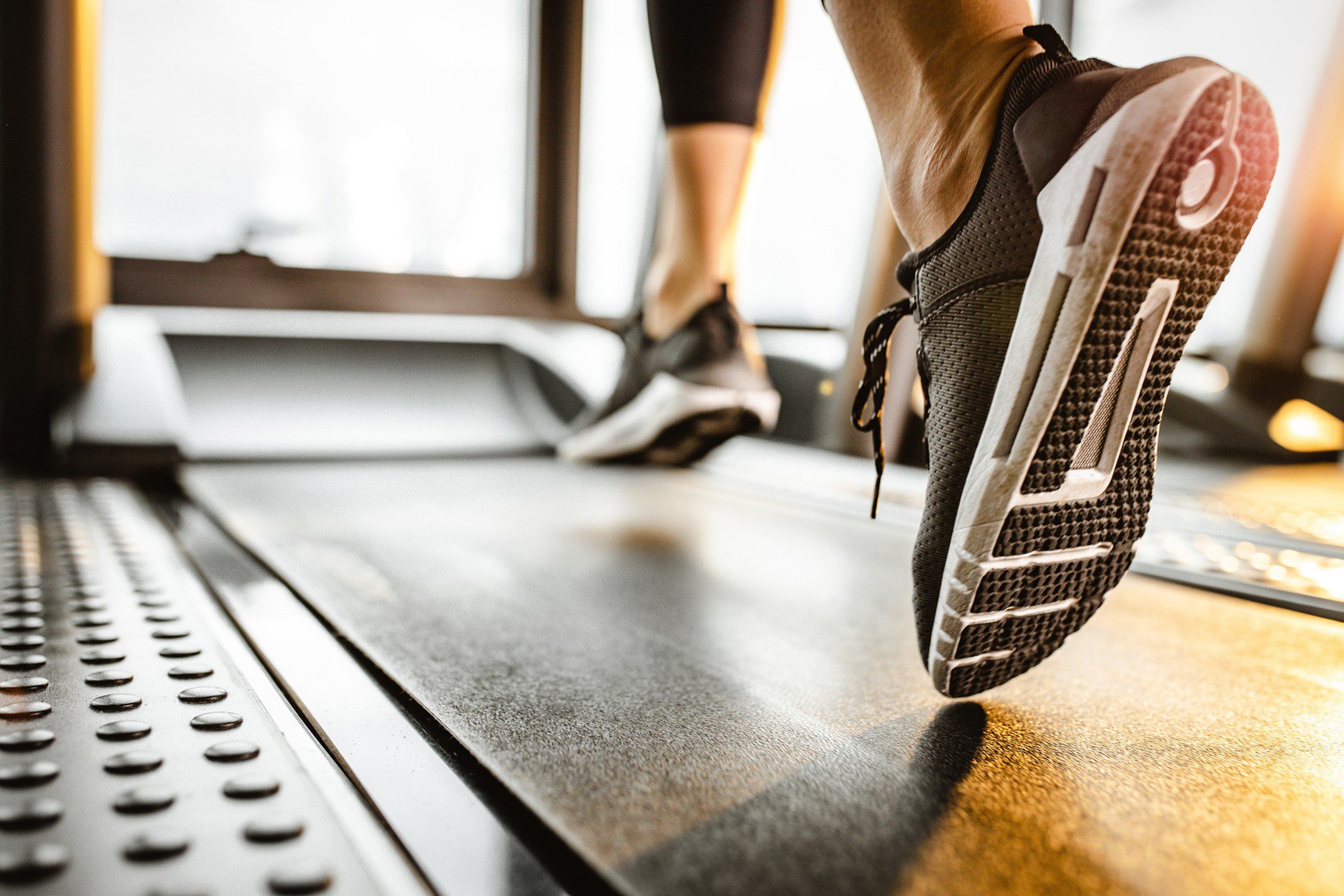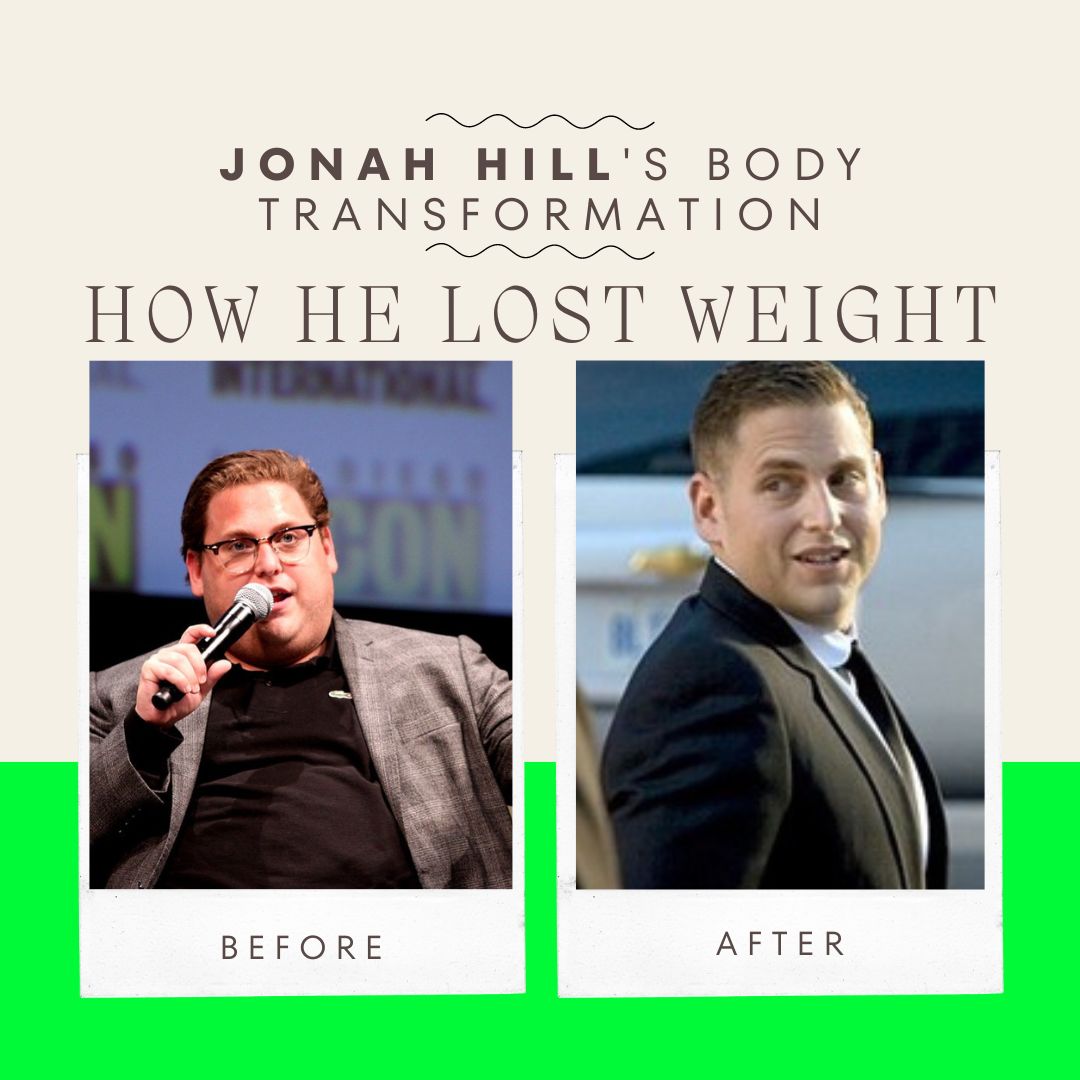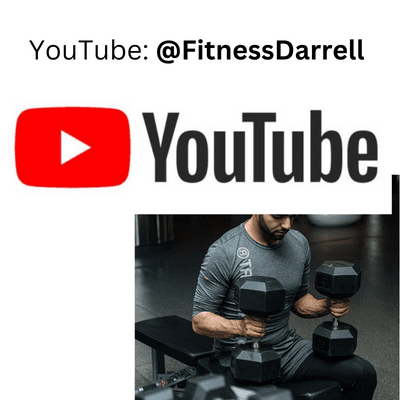


Which is better for longevity, resistance training or cardio? I understand if the mere mention of exercise makes some people cringe. What if I told you that exercise is not just a means to get a six-pack or toned arms, but it’s also the secret to living longer? Yes, you heard me right, my dear friend. Exercise is the ultimate fountain of youth, and it’s time we start taking it seriously.
Now, before you roll your eyes and dismiss me as just another fitness enthusiast, let’s talk about the great debate in the world of exercise – resistance training versus cardio. Which is better for longevity, resistance training or cardio? It’s like the ultimate showdown between Batman and Superman, only with more sweat and fewer capes. On one hand, you have resistance training fanatics who believe that building muscle is the key to a long and healthy life. On the other hand, you have cardio enthusiasts who swear by the benefits of running, cycling, and all things aerobic. It’s like the GOAT debate about who is a better basketball player, MJ or Lebron in the fitness world. Social media only adds fuel to the fire.
But wait my friend, there’s no need to pick sides just yet. The truth is, both resistance training and cardio exercise have their unique benefits. So, which is better for longevity, resistance training or cardio? First off, let’s talk about why resistance training is fire.
What are the benefits of resistance training for longevity?
While we talk about a long and healthy life, the benefits of resistance training benefit the quality of life too. Here are some of the benefits you can expect from incorporating resistance training into your exercise routine:
- Glucose sync and improved insulin function. Resistance training can help regulate glucose levels in your body, which is especially important for people with insulin resistance or type 2 diabetes.
- Improved ability to stave off frailty and wasting from diseases. As we age, our muscles tend to weaken, making us more susceptible to frailty and wasting from diseases. Resistance training can help counteract this by building and maintaining muscle mass.
- Muscle mass benefits from a resting metabolic rate standpoint. Building muscle can also have metabolic benefits beyond just burning calories. Muscle tissue is more active metabolically than fat tissue. The more muscle mass you have, the more calories your body burns even when you’re not exercising.
- Having more muscle increases glucose storage. By increasing muscle mass, you create more places for glucose to be stored in your body, which helps regulate blood sugar levels.
- Muscle mass improves all-cause mortality: Studies have shown that having more muscle mass is associated with lower rates of mortality from all causes, including cardiovascular disease, cancer, and respiratory disease.
- Having more muscle can help people withstand muscle wasting from diseases: Muscle wasting can occur as a result of diseases such as cancer, HIV/AIDS, and chronic obstructive pulmonary disease (COPD). Resistance training can help slow down or even prevent muscle wasting, allowing people to maintain their strength and independence for longer.
A Medicine & Science in Sports & Exercise study found that almost 1 in 4 people (23.1%) didn’t have enough muscle on their body, and about 1 in 6 people (17.0%) had low muscle mass when considering their BMI. Furthermore, almost 1 in 5 people (19.4%) had weak muscles. The study found that people with weak muscles were more likely to die from any cause, even if they had enough muscle in his or her body. For those with low muscle mass, the chance of death was twice as high. Even for those without low muscle mass, the chance of death was still twice as high if they had weak muscles.
If you haven’t started resistance training yet, start with flexibility and stability training. Then add movement and functional activities. You should only start resistance training after you have built a foundation. It prevents injuries as a result. So, if you’re looking to live a longer, healthier life, consider adding some resistance training to your exercise routine.
What are the benefits of cardio for longevity?
As important as resistance training is for overall health, cardio exercise should also be incorporated into your routine. Cardio exercise, also known as aerobic exercise, is any type of activity that increases your heart rate and breathing rate, such as jogging, cycling, swimming, or dancing. Here are some of the benefits of cardio for longevity and health:
- Heart/Cardiovascular health. One of the most well-known benefits of cardio exercise is improved heart/cardiovascular health. Cardio exercise can help strengthen the heart muscle, improve blood flow and circulation, and lower blood pressure and cholesterol levels. Regular cardio exercise has been shown to reduce the risk of heart disease, stroke, and other cardiovascular problems.
- Cognitive/Brain function. Cardio exercise also has cognitive benefits, such as improving memory, attention, and concentration. Studies have shown that regular cardio exercise can increase the size of the hippocampus, a part of the brain that is important for memory and learning. Cardio exercise can also improve mood, reduce stress and anxiety, and boost overall mental health.
- Healthy endothelial cells. Endothelial cells are the cells that line the blood vessels in our body, and they play a crucial role in cardiovascular health. Regular cardio exercise has been shown to improve the health of endothelial cells, which can lead to better blood flow and circulation. This can also reduce the risk of developing conditions like atherosclerosis, a condition where plaque builds up in the arteries.
- Longer Telomere length. Another interesting benefit of cardio exercise is its effect on telomere length. Telomeres are protective caps on the end of our chromosomes that naturally shorten as we age. A study published in JAMA involving 2401 twins found that exercise, regardless of the type, increases telomere length. This means that regular cardio exercise can help protect our DNA from damage and aging.
What about the debate on social media?
Social media has become an integral part of modern life, providing people with easy access to information and connections with others. However, it has also brought about a downside that can negatively impact our health and longevity. One major issue is the creation of opposing camps that demonize each other. When it comes to exercise, some people advocate for resistance training, while others prefer cardio. These groups may argue endlessly, with neither side willing to concede any ground.
For those new, it can be overwhelming to navigate conflicting advice and opinions. It’s important to remember that every individual has unique needs, and what works for one person may not work for another. Rather than falling into one camp or the other, it’s essential to seek balance and data to determine the best form of exercise for your specific goals and health concerns. Consider consulting with a fitness professional or physician who can provide tailored guidance based on your individual needs and goals.
So, which is better for longevity, resistance training or cardio?
Trick question. That’s because both are key and proven to be critical in increasing a person’s lifespan. The study in Jama controlled for several factors and found that inactive people are biologically 10 years older than the active people in the study! Since exercise also improves the quality of life, this means people live not just longer but also better.
If you haven’t started exercising, check out this article that talks about how to make it a habit.
References:
Li R, Xia J, Zhang XI, Gathirua-Mwangi WG, Guo J, Li Y, McKenzie S, Song Y. Associations of Muscle Mass and Strength with All-Cause Mortality among US Older Adults. Med Sci Sports Exerc. 2018 Mar;50(3):458-467. doi: 10.1249/MSS.0000000000001448. PMID: 28991040; PMCID: PMC5820209.
Cherkas LF, Hunkin JL, Kato BS, et al. The Association Between Physical Activity in Leisure Time and Leukocyte Telomere Length. Arch Intern Med. 2008;168(2):154–158. doi:10.1001/archinternmed.2007.39
Editor's Pick



Which is better for longevity, resistance training or cardio? I understand if the mere mention of exercise makes some people cringe. What if I told you that exercise is not just a means to get a six-pack or toned arms, but it’s also the secret to living longer? Yes, you heard me right, my dear friend. Exercise is the ultimate fountain of youth, and it’s time we start taking it seriously.
Now, before you roll your eyes and dismiss me as just another fitness enthusiast, let’s talk about the great debate in the world of exercise – resistance training versus cardio. Which is better for longevity, resistance training or cardio? It’s like the ultimate showdown between Batman and Superman, only with more sweat and fewer capes. On one hand, you have resistance training fanatics who believe that building muscle is the key to a long and healthy life. On the other hand, you have cardio enthusiasts who swear by the benefits of running, cycling, and all things aerobic. It’s like the GOAT debate about who is a better basketball player, MJ or Lebron in the fitness world. Social media only adds fuel to the fire.
But wait my friend, there’s no need to pick sides just yet. The truth is, both resistance training and cardio exercise have their unique benefits. So, which is better for longevity, resistance training or cardio? First off, let’s talk about why resistance training is fire.
What are the benefits of resistance training for longevity?
While we talk about a long and healthy life, the benefits of resistance training benefit the quality of life too. Here are some of the benefits you can expect from incorporating resistance training into your exercise routine:
- Glucose sync and improved insulin function. Resistance training can help regulate glucose levels in your body, which is especially important for people with insulin resistance or type 2 diabetes.
- Improved ability to stave off frailty and wasting from diseases. As we age, our muscles tend to weaken, making us more susceptible to frailty and wasting from diseases. Resistance training can help counteract this by building and maintaining muscle mass.
- Muscle mass benefits from a resting metabolic rate standpoint. Building muscle can also have metabolic benefits beyond just burning calories. Muscle tissue is more active metabolically than fat tissue. The more muscle mass you have, the more calories your body burns even when you’re not exercising.
- Having more muscle increases glucose storage. By increasing muscle mass, you create more places for glucose to be stored in your body, which helps regulate blood sugar levels.
- Muscle mass improves all-cause mortality: Studies have shown that having more muscle mass is associated with lower rates of mortality from all causes, including cardiovascular disease, cancer, and respiratory disease.
- Having more muscle can help people withstand muscle wasting from diseases: Muscle wasting can occur as a result of diseases such as cancer, HIV/AIDS, and chronic obstructive pulmonary disease (COPD). Resistance training can help slow down or even prevent muscle wasting, allowing people to maintain their strength and independence for longer.
A Medicine & Science in Sports & Exercise study found that almost 1 in 4 people (23.1%) didn’t have enough muscle on their body, and about 1 in 6 people (17.0%) had low muscle mass when considering their BMI. Furthermore, almost 1 in 5 people (19.4%) had weak muscles. The study found that people with weak muscles were more likely to die from any cause, even if they had enough muscle in his or her body. For those with low muscle mass, the chance of death was twice as high. Even for those without low muscle mass, the chance of death was still twice as high if they had weak muscles.
If you haven’t started resistance training yet, start with flexibility and stability training. Then add movement and functional activities. You should only start resistance training after you have built a foundation. It prevents injuries as a result. So, if you’re looking to live a longer, healthier life, consider adding some resistance training to your exercise routine.
What are the benefits of cardio for longevity?
As important as resistance training is for overall health, cardio exercise should also be incorporated into your routine. Cardio exercise, also known as aerobic exercise, is any type of activity that increases your heart rate and breathing rate, such as jogging, cycling, swimming, or dancing. Here are some of the benefits of cardio for longevity and health:
- Heart/Cardiovascular health. One of the most well-known benefits of cardio exercise is improved heart/cardiovascular health. Cardio exercise can help strengthen the heart muscle, improve blood flow and circulation, and lower blood pressure and cholesterol levels. Regular cardio exercise has been shown to reduce the risk of heart disease, stroke, and other cardiovascular problems.
- Cognitive/Brain function. Cardio exercise also has cognitive benefits, such as improving memory, attention, and concentration. Studies have shown that regular cardio exercise can increase the size of the hippocampus, a part of the brain that is important for memory and learning. Cardio exercise can also improve mood, reduce stress and anxiety, and boost overall mental health.
- Healthy endothelial cells. Endothelial cells are the cells that line the blood vessels in our body, and they play a crucial role in cardiovascular health. Regular cardio exercise has been shown to improve the health of endothelial cells, which can lead to better blood flow and circulation. This can also reduce the risk of developing conditions like atherosclerosis, a condition where plaque builds up in the arteries.
- Longer Telomere length. Another interesting benefit of cardio exercise is its effect on telomere length. Telomeres are protective caps on the end of our chromosomes that naturally shorten as we age. A study published in JAMA involving 2401 twins found that exercise, regardless of the type, increases telomere length. This means that regular cardio exercise can help protect our DNA from damage and aging.
What about the debate on social media?
Social media has become an integral part of modern life, providing people with easy access to information and connections with others. However, it has also brought about a downside that can negatively impact our health and longevity. One major issue is the creation of opposing camps that demonize each other. When it comes to exercise, some people advocate for resistance training, while others prefer cardio. These groups may argue endlessly, with neither side willing to concede any ground.
For those new, it can be overwhelming to navigate conflicting advice and opinions. It’s important to remember that every individual has unique needs, and what works for one person may not work for another. Rather than falling into one camp or the other, it’s essential to seek balance and data to determine the best form of exercise for your specific goals and health concerns. Consider consulting with a fitness professional or physician who can provide tailored guidance based on your individual needs and goals.
So, which is better for longevity, resistance training or cardio?
Trick question. That’s because both are key and proven to be critical in increasing a person’s lifespan. The study in Jama controlled for several factors and found that inactive people are biologically 10 years older than the active people in the study! Since exercise also improves the quality of life, this means people live not just longer but also better.
If you haven’t started exercising, check out this article that talks about how to make it a habit.
References:
Li R, Xia J, Zhang XI, Gathirua-Mwangi WG, Guo J, Li Y, McKenzie S, Song Y. Associations of Muscle Mass and Strength with All-Cause Mortality among US Older Adults. Med Sci Sports Exerc. 2018 Mar;50(3):458-467. doi: 10.1249/MSS.0000000000001448. PMID: 28991040; PMCID: PMC5820209.
Cherkas LF, Hunkin JL, Kato BS, et al. The Association Between Physical Activity in Leisure Time and Leukocyte Telomere Length. Arch Intern Med. 2008;168(2):154–158. doi:10.1001/archinternmed.2007.39








